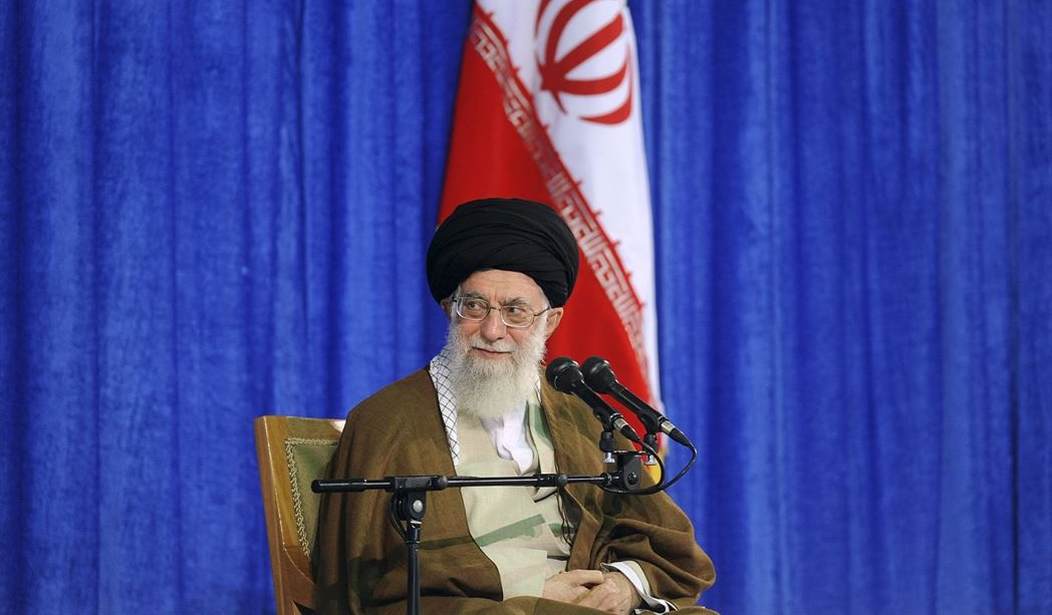Iranian-American community leaders from across the United States gathered in Washington D.C. on May 5, for a convention aimed at promoting democracy and human rights in Iran. The event featured a speech by National Council of Resistance of Iran president Maryam Rajavi. Her video-taped message from the coalition’s Paris headquarters was no doubt a preview of the June 30 “Iran Freedom” gathering, which annually attracts upwards of 100,000 Iranian expatriates and Western experts advocating a more assertive approach to the Islamic Republic.
This year, the views of those specialists may gain more traction in the mainstream, after being marginalized for too long. For decades, the US and its allies have been prone to policies of appeasement, predicated on the assumption that Iran’s theocratic regime was stable and faced little in the way of viable democratic opposition. But the Trump administration is clearly tacking a new course.
Trump’s approach has not remained narrowly focused on Iran’s nuclear program, instead acknowledging the implication of recent developments in the Islamic Republic – developments also underscored in the message by Rajavi.
Mrs. Rajavi reminded the convention of several accurate predictions that the Iranian Resistance had made during and after the Obama administration’s nuclear negotiations with Iran that resulted in the so-called Joint Comprehensive Plan of Action (JCPOA).
“The experience of the past three years has confirmed that the mullahs took advantage of the concessions in the JCPOA to suppress the people of Iran and massacre the people of Syria,” she said.
The NCRI had also insisted that any Iranian assets unfrozen under the nuclear agreement be strictly monitored by the United Nations, lest they be misappropriated to further the regime’s longstanding support of terrorism both at home and abroad.
Recommended
Rajavi’s reference to Syria reflected her organization’s warnings about the unchecked influence of Iran’s Islamic Revolutionary Guard Corps on virtually all of the region’s crises from the civil wars in Syria and Yemen to the activities of Shiite militants in areas less in the limelight. Lately various leading foreign policy officials have voiced those same concerns, including Defense Secretary James Mattis, who has repeatedly pointed to the Iranian fingerprints on every major crisis throughout the Middle East.
The fallacy of a single-minded focus has been underscored by the course of events since the nuclear negotiations. Appeasement has only allowed regional crises to fester. Iran’s patronage of the Assad regime has gone a long way toward enabling the violence against the Syrian people, including chemical weapons attacks. This, in turn, has worsened the circumstances of the Iranian people, straining under the weight of Tehran’s wasteful spending on regional interventions.
Iranians continue to proclaim their distress and dissatisfaction, raising the same grievances as those encapsulated in the slogans of the mass uprising that began in December: “Forget about Syria; think of us,” and “death to the dictator.” The ongoing unrest speaks to another prediction by Mrs. Rajavi, on the Iranian New Year in March. The year ahead, she said, would be “a year full of uprisings” leading to a complete change of government in Iran.
She underscored the imperative for Western backing for this goal in her remarks to the Washington convention last week. The Iranian people, she said, “are calling on the international community, in particular the West, to support their uprising for the overthrow of the Iranian regime.”
This may have been an unlikely prospect as little as two years ago, but the shift in tone under the Trump administration raises the prospects of the United States and its allies endorsing the Iranian people’s efforts to achieve something for which they have been striving since before the 1979 revolution.
For now, the most important thing the United States and its allies in Europe and the Middle East can do is to take a broader view of Iran policy and use the American withdrawal from the nuclear agreement as an opportunity to exert pressure on the full range of Iranian behaviors. Mrs. Rajavi has made meaningful recommendations about what such pressure might entail, including punitive measures aimed at compelling the mullahs to release political prisoners detained as a result of the recent protests. No doubt, more recommendations will be forthcoming at a June rally in Paris.
In the run-up to that event, perhaps the most fundamental step that critics of the Iranian regime - the White House included - should take is to acknowledge the NCRI as a viable, democratic alternative to the Islamic Republic regime. If leaving behind the failed policies of the past will indeed undermine the mullahs’ unwelcome reign of terror, then clearly the NCRI president’s predictions are worth listening to. She’s been spot on so far.























Join the conversation as a VIP Member